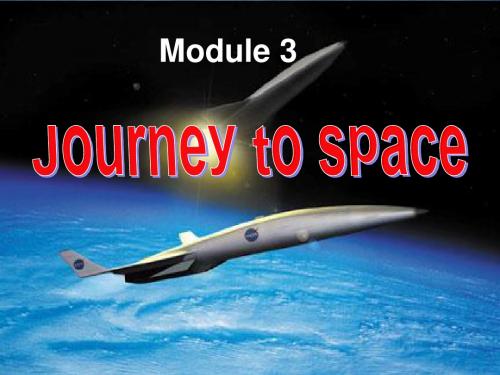英语现在完成时ppt
合集下载
初二人教英语现在完成时态课件(共25张PPT)

常见非延续性动词和延续性动词的转变
❖ arrive/come/go to be in
die
be dead
❖ become a
be a borrow
keep
❖ Leave/ move
be away / be out
❖ buy
have open
be open
❖ join
be in/a member of
5. --How many times _h_a_v_e____ you __r_e_a_d___ (read) this book?
❖ --I _h_a_v_e_r_e_a_d_ (read) it several times.
6. My brotherb_ou_g_h_t____ (buy) a car last month.
❖ The twins have joined the army. (since they are 18years old) The twins have been soldiers/ been in the army since they are 18years old.
-- When c_a_m_e_____ she _________ (come)? -- She ________ (come) just now.
I lived there 2 years ago
past
present
I have lived here for two years
❖ 1.都表示过去发生的事 ❖ 2.现在完成时强调过去和现在的联系,不能和具
定回答) He has already finished a story book.
4.He finished reading a story- book. (改成现在完成时)
英语“现在完成时--课件(共14张PPT)

2. A: 这本书我已经买了两年了A. : I`ve had the book for two years.
B: 你在哪儿买的?
B: Where did you buy it?
A: 在我老家买的.
A: I bought it in my hometown.
3. A: 你看过这部电影吗? A: Have you seen the film?
注意点三:have been in, have been to 与have gone to 的用法 1、have (has) been in 表示“在某地(多长时间)”,现在仍在那里。常与表 示一段时间的状语连用。例如: Mr. Brown has been in Shanghai for three days. 布朗来上海已经有三天了。 They have been in Canada for five years. 他们到加拿大有五年了。 2、have( has)been to表示“曾经去过某地”,现在已经不在那里了。可与just, ever, never等连用,例如: I have just been to the post office. 我刚去过邮局了。 Mary has never been to the Great Wall. 玛丽从未去过长城。 Have you ever been to Hangzhou before? 你以前曾经去过杭州吗? Have (has) been to 后面可接次数,表示去过某地几次。例如: They have been to that village several times. 他们去过那个村庄好几次了。 3、have (has) gone to 意为“到某地去了”,表示到了某地或正在去某地的途 中。总之,说话时该人不在现场,例如: ----Where is Tom? ----He has gone to the bookshop. 他到书店去了。 Jack Johnson has gone to London. 杰克.约翰逊到伦敦去了。
初中现在完成时讲解ppt

for
since
for
since
for
since
练习题: 1.It's a long time since we ____ (meet) last, isn't it? 2.--I know you ___________ (choose) a picture book among these. --Yes,Have a look at it, please. 3.So far, spaceships without people ___________ (reach) the moon and some other parts of the universe. 4.My father____ home for nearly three weeks. A.has gone away from B.has left C.has been away from D.went away 5.Mr. and Mrs. Green have_____in China for a week. A.been B.got C.arrived D.reached
eg.--- I’ve lived here for 15 years. eg.--- I’ve lived here since 15 years ago(1990)
选用for和since填空: 1.We haven’t seen each other ______ a long time. 2.His father has been in the factory ______ 10 years ago. 3.The film has been on ______ 20 minutes. 4.Mr Green has worked here ______ he came to China. 5.His grandparents have been dead ______ several years. 6. It’s five years _______ we met last time
since
for
since
for
since
练习题: 1.It's a long time since we ____ (meet) last, isn't it? 2.--I know you ___________ (choose) a picture book among these. --Yes,Have a look at it, please. 3.So far, spaceships without people ___________ (reach) the moon and some other parts of the universe. 4.My father____ home for nearly three weeks. A.has gone away from B.has left C.has been away from D.went away 5.Mr. and Mrs. Green have_____in China for a week. A.been B.got C.arrived D.reached
eg.--- I’ve lived here for 15 years. eg.--- I’ve lived here since 15 years ago(1990)
选用for和since填空: 1.We haven’t seen each other ______ a long time. 2.His father has been in the factory ______ 10 years ago. 3.The film has been on ______ 20 minutes. 4.Mr Green has worked here ______ he came to China. 5.His grandparents have been dead ______ several years. 6. It’s five years _______ we met last time
现在完成时ppt课件

结构不同
过去完成时由“had+过去分词”构成,而现在完成时由 “have/has+过去分词”构成。
动作的完成情况不同
过去完成时表示动作在过去某一时间之前已经完成,而现在完成时 则表示动作在过去发生后对现在造成了影响或结果。
PART 05
现在完成时的常见错误
REPORTING
忽略现在完成时的使用场合
PART 03
现在完成时的特殊用法
REPORTING
与already连用的用法
总结词
already是现在完成时的常用副词之一,用于表达某件事情已经完成或已经发 生。
详细描述
在现在完成时中,already通常用于肯定句中,表示某件事情已经完成或已经发 生,常与have或has连用。例如,“I have already finished my homework.”(我已经完成了我的作业)。
总结词
不重视现在完成时的应用场景
详细描述
有些英语学习者在运用现在完成时的时候, 不注意它所适用的场合。现在完成时主要用 来描述过去发生的动作或状态对现在造成的 影响或结果,比如:“I have finished my homework”(我已经完成了我的作业)。
混淆现在完成时与一般过去时的使用场合
现在完成时ppt课件
REPORTING
• 现在完成时的定义和构成 • 现在完成时的基本用法 • 现在完成时的特殊用法 • 现在完成时与一般过去时的区别 • 现在完成时的常见错误 • 现在完成时练习题及答案解析
目录
PART 01
现在完成时的定义和构成
REPORTING
现在完成时的定义
现在完成时是英语语法中的一种时态 ,通常由助动词have/has + 过去分 词构成,用于描述过去发生的动作或 状态对现在产生的影响或结果。
过去完成时由“had+过去分词”构成,而现在完成时由 “have/has+过去分词”构成。
动作的完成情况不同
过去完成时表示动作在过去某一时间之前已经完成,而现在完成时 则表示动作在过去发生后对现在造成了影响或结果。
PART 05
现在完成时的常见错误
REPORTING
忽略现在完成时的使用场合
PART 03
现在完成时的特殊用法
REPORTING
与already连用的用法
总结词
already是现在完成时的常用副词之一,用于表达某件事情已经完成或已经发 生。
详细描述
在现在完成时中,already通常用于肯定句中,表示某件事情已经完成或已经发 生,常与have或has连用。例如,“I have already finished my homework.”(我已经完成了我的作业)。
总结词
不重视现在完成时的应用场景
详细描述
有些英语学习者在运用现在完成时的时候, 不注意它所适用的场合。现在完成时主要用 来描述过去发生的动作或状态对现在造成的 影响或结果,比如:“I have finished my homework”(我已经完成了我的作业)。
混淆现在完成时与一般过去时的使用场合
现在完成时ppt课件
REPORTING
• 现在完成时的定义和构成 • 现在完成时的基本用法 • 现在完成时的特殊用法 • 现在完成时与一般过去时的区别 • 现在完成时的常见错误 • 现在完成时练习题及答案解析
目录
PART 01
现在完成时的定义和构成
REPORTING
现在完成时的定义
现在完成时是英语语法中的一种时态 ,通常由助动词have/has + 过去分 词构成,用于描述过去发生的动作或 状态对现在产生的影响或结果。
《现在完成时态》ppt课件

REPORT
现在完成时态
CATALOG
DATE
ANALYSIS
SUMMARY
目录
CONTENTS
• 现在完成时态的定义 • 现在完成时态的用法 • 现在完成时态与一般过去时的区别 • 现在完成时态的特殊用法 • 现在完成时态的练习与解析
REPORT
CATALOG
DATE
ANALYSIS
SUMMAR Y
翻译练习
总结词
跨文化理解
总结词
句型转换能力
详细描述
通过将英文句子翻译成中文,学生可以更 好地理解现在完成时态在中文表达中的对 应形式,促进跨文化交流和理解。
详细描述
翻译练习不仅要求学生掌握时态的转换, 还需要注意句型的变化和语言的流畅性, 有助于提高学生的语言运用能力。
REPORT
THANKS
感谢观看
用于描述过去发生的某个事件或经历, 并强调该事件或经历对现在的影响或 结果。
用于表达对过去某个时间点或时期的 情况的回忆或回顾。
REPORT
CATALOG
DATE
ANALYSIS
SUMMAR Y
03
现在完成时态与一般过 去时的区别
时间点的区别
01
过去时描述过去某个时间点发生 的事情,强调事情发生的时间点 。
CATALOG
DATE
ANALYSIS
SUMMAR Y
这个句子中的“Have you seen” 表示询问对方是否已经完成了动 作“看电影”,强调了动作的完
成状态。
REPORT
CATALOG
DATE
ANALYSIS
ቤተ መጻሕፍቲ ባይዱ
SUMMAR Y
05
现在完成时态
CATALOG
DATE
ANALYSIS
SUMMARY
目录
CONTENTS
• 现在完成时态的定义 • 现在完成时态的用法 • 现在完成时态与一般过去时的区别 • 现在完成时态的特殊用法 • 现在完成时态的练习与解析
REPORT
CATALOG
DATE
ANALYSIS
SUMMAR Y
翻译练习
总结词
跨文化理解
总结词
句型转换能力
详细描述
通过将英文句子翻译成中文,学生可以更 好地理解现在完成时态在中文表达中的对 应形式,促进跨文化交流和理解。
详细描述
翻译练习不仅要求学生掌握时态的转换, 还需要注意句型的变化和语言的流畅性, 有助于提高学生的语言运用能力。
REPORT
THANKS
感谢观看
用于描述过去发生的某个事件或经历, 并强调该事件或经历对现在的影响或 结果。
用于表达对过去某个时间点或时期的 情况的回忆或回顾。
REPORT
CATALOG
DATE
ANALYSIS
SUMMAR Y
03
现在完成时态与一般过 去时的区别
时间点的区别
01
过去时描述过去某个时间点发生 的事情,强调事情发生的时间点 。
CATALOG
DATE
ANALYSIS
SUMMAR Y
这个句子中的“Have you seen” 表示询问对方是否已经完成了动 作“看电影”,强调了动作的完
成状态。
REPORT
CATALOG
DATE
ANALYSIS
ቤተ መጻሕፍቲ ባይዱ
SUMMAR Y
05
现在完成时ppt课件

详细描述
例如,“他昨天正在巴黎旅行”是过去进行时,强调昨天正在进行的动作,而“ 他已经去了巴黎”是现在完成时,强调现在已完成去巴黎的动作及其对现在的影 响。
05 现在完成时的常见错误
混淆现在完成时和一般现在时
总结词
混淆现在完成时和一般现在时是常见的语法错误之一。
详细描述
现在完成时表示过去发生的动作对现在造成的影响或结果,而一般现在时则表示通常或反复发生的动作。两者的 区别在于现在完成时涉及时间上的“过去-现在”联系。
详细描述:现在完成时是英语语法中的一种时态,表示 过去发生的动作对现在造成的影响或结果。以下是现在 完成时的基本用法练习题
2. They have ______ a race.
3. She has ______ a headache.
答案: 1. written 2. run 3. had
现在完成时的特殊用法练习题
有些动词的过去分词形式是 不规则的,需要单独记忆, 例如go变成gone,write变 成written等。
02 现在完成时的基本用法
肯定句的用法
总结词
现在完成时在肯定句中通常用来表示动作在 过去已经完成,但对现在仍有影响。
详细描述
使用现在完成时,我们能够表达一个动作或 状态在过去已经发生或存在,但这个动作或
总结词:现在完成时的特殊用法练习 题
01
详细描述:除了基本用法外,现在完 成时还有许多特殊用法。以下是现在
完成时的特殊用法练习题
02
1. We have ______ in this school for three years.
03
Hale Waihona Puke 06答案: 1. been 2. bought 3. gone
例如,“他昨天正在巴黎旅行”是过去进行时,强调昨天正在进行的动作,而“ 他已经去了巴黎”是现在完成时,强调现在已完成去巴黎的动作及其对现在的影 响。
05 现在完成时的常见错误
混淆现在完成时和一般现在时
总结词
混淆现在完成时和一般现在时是常见的语法错误之一。
详细描述
现在完成时表示过去发生的动作对现在造成的影响或结果,而一般现在时则表示通常或反复发生的动作。两者的 区别在于现在完成时涉及时间上的“过去-现在”联系。
详细描述:现在完成时是英语语法中的一种时态,表示 过去发生的动作对现在造成的影响或结果。以下是现在 完成时的基本用法练习题
2. They have ______ a race.
3. She has ______ a headache.
答案: 1. written 2. run 3. had
现在完成时的特殊用法练习题
有些动词的过去分词形式是 不规则的,需要单独记忆, 例如go变成gone,write变 成written等。
02 现在完成时的基本用法
肯定句的用法
总结词
现在完成时在肯定句中通常用来表示动作在 过去已经完成,但对现在仍有影响。
详细描述
使用现在完成时,我们能够表达一个动作或 状态在过去已经发生或存在,但这个动作或
总结词:现在完成时的特殊用法练习 题
01
详细描述:除了基本用法外,现在完 成时还有许多特殊用法。以下是现在
完成时的特殊用法练习题
02
1. We have ______ in this school for three years.
03
Hale Waihona Puke 06答案: 1. been 2. bought 3. gone
初中英语现在完成时(共25张PPT)

双写辅音字母+ed. 如:plan, stop,drop,fit(适 合), prefer(更喜欢), travel 4.以辅音字母+y,结尾,变y为i+ed try, study, carry, hurry, cry, worry,copy
1.肯定句:
主语+have/has(助动词)+过去分词+(其他)。
5. Sally joined the League two years ago.
Sally _______________ the League for two years.
has been in
比较延续性动词与瞬间性动词
延续性动词:表示可以延续一段时间的动作或状态。如: be,drink,fly,eat,keep,lie,live,rain等。 瞬间性动词:表示不能延续的动作,即动作发生后立即结束。如:
6. He left here 2 years ago.
--- He has been away from here for 2 years.
7. The film began 30 minutes ago. --- The film has been on for 30 minutes.
3.The meeting began two minutes ago.
The meeting __h_a__s_b_e_e_n__o_n_____ for two minutes.
4.We borrowed two books last week.
We __h_a__v_e_k__e_p_t____ the two books for a week.
They have left. --他们已经离开了,也就是说现在他们人不在这里 I have had my lunch. --我已经吃过午饭了,也就是说我现在不饿
1.肯定句:
主语+have/has(助动词)+过去分词+(其他)。
5. Sally joined the League two years ago.
Sally _______________ the League for two years.
has been in
比较延续性动词与瞬间性动词
延续性动词:表示可以延续一段时间的动作或状态。如: be,drink,fly,eat,keep,lie,live,rain等。 瞬间性动词:表示不能延续的动作,即动作发生后立即结束。如:
6. He left here 2 years ago.
--- He has been away from here for 2 years.
7. The film began 30 minutes ago. --- The film has been on for 30 minutes.
3.The meeting began two minutes ago.
The meeting __h_a__s_b_e_e_n__o_n_____ for two minutes.
4.We borrowed two books last week.
We __h_a__v_e_k__e_p_t____ the two books for a week.
They have left. --他们已经离开了,也就是说现在他们人不在这里 I have had my lunch. --我已经吃过午饭了,也就是说我现在不饿
现在完成时态课件

例如,“They has arrived.”(错误),应改为“They have arrived.”(正确)。
其他易错点提示
要点一
忘记在助动词后加动 词的过去分词形式
例如,“I have go to the park.” (错误),应改为“I have gone to the park.”(正确)。
感谢您的观看
不规则动词变化举例
be - was/were have - had
go - went
不规则动词变化举例
do - did see - saw
eat - ate
不规则动词变化举例
01
take - took
02
make - made
03
find - found
04
bring - brought
特殊情况处理技巧
例如
I have already finished my homework.(我已经完成我的作业了。)
否定句结构和用法
现在完成时态否定句的基本结构是
主语+have/has+not&# watched the movie yet.(她还没有看过那部电影。)
疑问句结构和用法
现在完成时态课件
contents
目录
• 现在完成时态基本概念 • 现在完成时态用法详解 • 动词变化规则及特殊情况处理 • 句子结构和用法举例 • 常见错误及注意事项 • 练习与巩固环节
01 现在完成时态基本概念
定义与用法
现在完成时态表示过去发生的动作对现在 造成的影响或结果,或表示从过去某个时 间点开始一直持续到现在的动作或状态。
经历与经验
现在完成时态还可以表示过去的经历或经验,这些经历或经验对现在的情况或 行为产生影响。例如,“He has traveled to many countries.”(他去过很多 国家。)
其他易错点提示
要点一
忘记在助动词后加动 词的过去分词形式
例如,“I have go to the park.” (错误),应改为“I have gone to the park.”(正确)。
感谢您的观看
不规则动词变化举例
be - was/were have - had
go - went
不规则动词变化举例
do - did see - saw
eat - ate
不规则动词变化举例
01
take - took
02
make - made
03
find - found
04
bring - brought
特殊情况处理技巧
例如
I have already finished my homework.(我已经完成我的作业了。)
否定句结构和用法
现在完成时态否定句的基本结构是
主语+have/has+not&# watched the movie yet.(她还没有看过那部电影。)
疑问句结构和用法
现在完成时态课件
contents
目录
• 现在完成时态基本概念 • 现在完成时态用法详解 • 动词变化规则及特殊情况处理 • 句子结构和用法举例 • 常见错误及注意事项 • 练习与巩固环节
01 现在完成时态基本概念
定义与用法
现在完成时态表示过去发生的动作对现在 造成的影响或结果,或表示从过去某个时 间点开始一直持续到现在的动作或状态。
经历与经验
现在完成时态还可以表示过去的经历或经验,这些经历或经验对现在的情况或 行为产生影响。例如,“He has traveled to many countries.”(他去过很多 国家。)
初二英语《现在完成时》PPT课件

5. We have started to look at other planets. ( just ) ________________________________ We have just started to look at other ______. planets 6. The space shuttle has returned from a visit to the space station.( just ) _______________________________ The space shuttle has just returned ___________________________. from a visit to the space station
Bill: They’ve already (5)_______ found
(find) that there’s no life on
the moon. Nicky: Yes, that’s right. So far there’s only life on earth.
Complete the passage with the words in the box. already been haven’t just never read written yet Dear Diary, I’ve (1)_____ just finished reading a great book at school. I haven’t (2)______ read anything as good as that for a long time! It is a book about the solar system. It is so good
初中英语现在完成时讲解全(共24张PPT)

I studied English ten years ago.
(come来到某地….
left the team
has been on C.
表示动作发生在过去,对现在造成的影响。
)
be over
went to bed
填空使用for和since
Tom ___for several hours.
表示动作发生在过去,对现在造成的影响。
• She has lived here ______1996.
• 2 标准词:so far/up to now (到目前为止) ;lately/recently(最近)
• Up to now/So far ,I haven’t been successful.
• Lately/Recently,I haven’t seen my teacher.
3. He bought the motorbike a month ago.
---He ____ ____ the motorbike for a month. 4. He arrived here three days ago.
--- He ____ ____ here since three days ago. 5. They turned off the light 2 hours ago.
(finish结束....)
be over
1.我买这本书三年了。Buy I have bought the book.
(1) I have had the book for 3 years. (2) I have had the book since 3 years ago.
了borrow He has borrow the book. (1)He has kept the book for 2 months . (2) He has kept the book since 2 months ago.
《现在完成时》课件

到达之前信已经寄出,强调时间上的先后顺序。
05
CATALOGUE
现在完成时的练习与巩固
选择题练习
总结词
考察对现在完成时的理解
详细描述
设计多个选择题,选项中包括现在完成时的正确形式和常见的错误形式,让学生通过选择题练习加深 对现在完成时的理解。
填空题练习
总结词
检验对现在完成时的掌握程度
详细描述
提供句子,让学生填写正确的现在完 成时态,通过填空题练习,让学生在 实际运用中掌握现在完成时的正确形 式。
翻译练习
总结词
提升对现在完成时的运用能力
详细描述
选取一些中文句子,要求学生将其翻译成英文,并确保使用 正确的现在完成时态。通过翻译练习,让学生在实际语境中 运用现在完成时,提高语言运用能力。
THANKS
感谢观看
混淆现在完成时和一般现在时
总结词
两者都表示现在的状态或动作,但意义不同。
详细描述
现在完成时表示某个动作已经完成并对现在有影响,而一般现在时只是描述现在 的情况或习惯性的动作。例如,“I have finished my homework”表示作业已 经完成,而“I finish my homework every day”只是表示每天的作业习惯。
结构
have/has + 过去分词
用法
描述过去发生的动作对现在的影响或结果,强调 动作的完成和现在的状态。
现在完成时的基本结构
基本结构
主语 + have/has + 过去分词 + 其他成分
注意事项
过去分词的形式必须与主成时的时态标志
时态标志
have/has + 过去分词
例子
05
CATALOGUE
现在完成时的练习与巩固
选择题练习
总结词
考察对现在完成时的理解
详细描述
设计多个选择题,选项中包括现在完成时的正确形式和常见的错误形式,让学生通过选择题练习加深 对现在完成时的理解。
填空题练习
总结词
检验对现在完成时的掌握程度
详细描述
提供句子,让学生填写正确的现在完 成时态,通过填空题练习,让学生在 实际运用中掌握现在完成时的正确形 式。
翻译练习
总结词
提升对现在完成时的运用能力
详细描述
选取一些中文句子,要求学生将其翻译成英文,并确保使用 正确的现在完成时态。通过翻译练习,让学生在实际语境中 运用现在完成时,提高语言运用能力。
THANKS
感谢观看
混淆现在完成时和一般现在时
总结词
两者都表示现在的状态或动作,但意义不同。
详细描述
现在完成时表示某个动作已经完成并对现在有影响,而一般现在时只是描述现在 的情况或习惯性的动作。例如,“I have finished my homework”表示作业已 经完成,而“I finish my homework every day”只是表示每天的作业习惯。
结构
have/has + 过去分词
用法
描述过去发生的动作对现在的影响或结果,强调 动作的完成和现在的状态。
现在完成时的基本结构
基本结构
主语 + have/has + 过去分词 + 其他成分
注意事项
过去分词的形式必须与主成时的时态标志
时态标志
have/has + 过去分词
例子
初中英语现在完成时精讲精练ppt课件

真题再现
2. --Look! Someone ______ the classroom. --Well, it wasn’t me. I didn’t do it.
A. is cleaning B. was cleaning C. has cleaned D. will clean
现在完成时意义与一般过去时的区别
延续动词与非延续动词
现在完成时表持续,在肯定句和疑问句中动词要用延续性动词
延续性动词:动作可持续 learn, work, stand, lie, know, walk, keep, wait, watch, sing, read, sleep, live, stay, have
非延续性动词:动作不可持续,只发生在一瞬间 buy, borrow, die, leave, begin, join
Linda has found her book. 结果:不需要再找了。
真题再现
1. I don’t feel very well, Jack. I’m afraid you ______ me your cold.
A. give B. had given C. have given D. would give
小试牛刀
3. --Look at the blue sky! The rain _______. --Let's go out for a walk.
A. stops B. will stop C. has stopped D. had stopped
小试牛刀
4. He _______ the city since he graduated from college.
延续动词与非延续动词
初中英语语法现在完成时精讲PPT

• 2. We went to the USA last Monday. Today is Monday . We h_a_v_e_s_t_a_y_ed_ (stay) in the USA since last Monday.
since and for
The woman has worked at this school for 2 years.( since two years ago)
4. 现在完成时常常与表示频度的时间状语 连用,如often, sometimes, ever, never, twice, on several occasion等:
Have you ever been to Beijing? I have never heard of Bunny. I have used this pen only three times. George has met that gentleman on several occasions.
__f_o_r __two days
__s_in_c_e__1997
__si_n_ce__yesterday
__fo_r___two weeks
afternoon
___s_in_c_e _three years
__si_n_ce__I came here ago
__si_n_ce__last Sunday __s_in_c_e__ last month
for + 时间段 for 2 years/a long time
since+时间点 since 2 years ago
since 1998 since she came to the school)
一、用for和since填空。
since and for
The woman has worked at this school for 2 years.( since two years ago)
4. 现在完成时常常与表示频度的时间状语 连用,如often, sometimes, ever, never, twice, on several occasion等:
Have you ever been to Beijing? I have never heard of Bunny. I have used this pen only three times. George has met that gentleman on several occasions.
__f_o_r __two days
__s_in_c_e__1997
__si_n_ce__yesterday
__fo_r___two weeks
afternoon
___s_in_c_e _three years
__si_n_ce__I came here ago
__si_n_ce__last Sunday __s_in_c_e__ last month
for + 时间段 for 2 years/a long time
since+时间点 since 2 years ago
since 1998 since she came to the school)
一、用for和since填空。
初中现在完成时讲解(完整版)ppt课件

He has stayed here since 5 hours ago. 3)since+ 从句
She has taught English since he came here.
for: (长达)
for+ 时间段
He has kept the book for 2 weeks.
完整最新版课件
15
完整最新版课件
4
现在完成时的结构
主语 + have/ has + 过去分词(pp)
注:主语若是第三人称单数助动词用 has
否定形式 haven’t ( have not ) +过去分词 hasn’t ( has not ) +过去分词
疑问句 把助动词 have / has 放在句首
完整最新版课件
5
• 5. I __________ (work) here since I ______ (move) here in 1999.
• 6. So far I _______________(make) quite a few friends here.
• 7. How long ________ the Wangs ______________(stay) here ? For two weeks.
take—took—taken speak —spoke—spoken sing—sang—sung drive—drove—driven be—was/were—been go—went—gone
完整最新版课件
9
4、不规则变化(A-A-A)
cut—cut—cut put —put—put let—let—let read—read—read
现在完成时的课件PPT

肯定句表达注意事项
01
注意区分现在完成时与一般过去时的用法,现在完成时 强调过去发生的动作对现在的影响,而一般过去时只表 示过去的某个动作或状态。
02
注意have/has的变形,当主语为第三人称单数时, have要变为has。
03
过去分词的变化规则需要掌握,包括规则变化和不规则 变化。
03 现在完成时否定句式
针对性辅导
拓展延伸
根据学生的实际情况,教师进行拓展 延伸,提供更多相关知识和练习题目 ,帮助学生进一步提高现在完成时的 运用能力。
针对学生在练习中暴露出的问题,教 师进行针对性辅导,帮助学生解决问 题。
1.谢谢聆 听
肯定句
主语 + have/has + 过 去分词 + 其他成分。
否定句
主语 + have/has + not + 过去分词 + 其 他成分。
疑问句
Have/Has + 主语 + 过去分词 + 其他成分 ?
简略回答
Yes, 主语 + have/has. 或 No, 主语 + haven't/hasn't.
否定句表达注意事项
注意区分现在完成时与一般过去时
现在完成时强调过去发生的动作对现在造成的影响或结果,而一般过去时只表示过去某个时间发生的 动作或存在的状态。
注意have/has的否定缩写形式
have not=haven't,has not=hasn't。
现在完成时疑问句式和回答方
04
式
疑问句构成及用法
特点
具有现在相关的时间参照点,强 调过去动作与现在的联系。
相关主题
- 1、下载文档前请自行甄别文档内容的完整性,平台不提供额外的编辑、内容补充、找答案等附加服务。
- 2、"仅部分预览"的文档,不可在线预览部分如存在完整性等问题,可反馈申请退款(可完整预览的文档不适用该条件!)。
- 3、如文档侵犯您的权益,请联系客服反馈,我们会尽快为您处理(人工客服工作时间:9:00-18:30)。
Present Perfect Tense
初中现在完成时
1. He ______________ (play) soccer on the playground now. 2. He ______________ (play) soccer on the playground yesterday. 3. He ______________ (play) soccer on the playground when I saw him yesterday.
现在完成时的基本句型:
※肯定句:主语 + 助动词have/has + 动词的过去分词…
※否定句: 主语 + 助动词have/has + not + 动词的过去分词….
※ 一般疑问句:助动词Have/Has + 主语 + 动词的过去分词…? 肯定回答:Yes,主语+ have/has 否定回答: No,主语+ have/has not ※特殊疑问句:疑问词+助动词Have/Has + 主语 + 动词的过去分
up to now, so far, for the last few weeks since for
1.already 表示已经,置于助动词之后和实 意动词之前,常用于肯定句; He has already left here. 他已经离开这里了。 2.just表示刚刚,置于助动词之后和实意动词 之前,常用于肯定句。 I have just finished my homework.
4. He ______________ (play) soccer on the playground every day.
5. He ______________ (play) soccer on the playground tomorrow
afternoon.
6. He ______________ (play) soccer on the playground for a long time.
。
不规则变化:
am/is-was-been do-did-done ride-rode-ridden come-came-come take-took-taken run- ran – run begin-began-begun
see-saw-seen
标志词
already,yet, never, ever ,before ,just
词…?
实义动词的过去分词:
规则变化(和过去式一样)
1、一般情况下,动词词尾加-ed,如:work—worked play—played want—wanted ask—asked
2、以不发音的-e结尾动词,动词词尾加-d,如 : live—lived move—moved taste—tasted. 3、 以“辅音字母+y”结尾的动词,把y改成i,加 — ed,如:study—studied try—tried carry—carried 4、重读闭音节动词,双写词尾辅音字母,再 加—ed, 如:stop—stopped
have been to/have gone to/have been in have been to 意思是“到过,去过”,去 了已回 have gone to 意思是“去了”,去了未 回 have been in 意思是“待在某地”归期 未知
上一页
主菜单
下一页
用Have been to, have gone to, have been in 填空
for 3. Our teacher has studied Japanese ___three years. 4. She has been away from the city ___ for about ten y ears. 5. It’s about ten years since __ she left the city.
定义 结构 标志词 非延续性动词的转换 Have 的动词词组如何区分
定义
※现在完成时表示过去发生或已经完成的动作 对现在造成的影响或结果 Someone has turned off the light. ※表示发生在过去某一时刻的动作,持续到现 在. I have lived there for five years
5、never 表示“从来没有“,置于助动词之后和实 意动词之前,常用于肯定句表示否定 We have never been to the Great Wall. 我们从来没有去过长城。
6、ever 表示“曾经”置于助动词之后和实意动词之前,
用于疑问句,
Have you ever been to Canada? 你们曾经去过加拿大吗?
7.up to now=so far, 迄今为止,到目前为止,
I have done so much works so far.
8.in/during the last/past +时间段, in/during the last five years,this city has changed a lot
9.for +时间段 Mary has been ill for three days. Since+时间点 since+一段时间+ago I have lived here since 1998. I have lived here since ten years ago. It is+时段+since从句(过去时) 等于 It has been +时间段+ since从句
For since
非延续性动词转换成延续性
※非延续性动词:动作一经发生即告结束,不与一
段时间连用 ※延续性 :动作发生后还可以持续一段时间,可 以与一段时间连用
现在完成时表示的是过去的一个动作一直持续到现 在,如果与一段时间连用时,谓语动词必须是延续 性动词,或者就是非延续性动词转换成延续性动词
come—be here; go—be there; close—be closed; open—be open; buy—have; borrow —keep; leave—be away; begin—be on; finish—be over; die—be dead etc.
上一页
主菜单
下一页
1.Mike and his parents have gone ___ to the north for half a year,and their home is still empty.
been to 2.I have__________ Beijing many times.
3.Mr. Brown has been inShanghai for three days.
1.He got to Beijing five years ago. been He has ﹍﹍ ﹍ in Beijing for five years . 2.Maria borrowed this book three days ago . has kept Maria ﹍ ﹍ ﹍ this book for three days 3. The shop closed two hours ago. closedfor two hours . The shop has ﹍ been ﹍ ﹍
3. yet在现在完成时中的用法 否定句:句末 “还(没)” I haven’t had breakfast yet. 疑问句: 句末 “已经” Have you had breakfast yet? 4.before ,表示“之前,以前”,常置于句末 , 不受句型限制 I have seen this moive before.
Exercise
1.-Have you B travelled on the train? Yes, I have. (A) never (B)ever (C)just (D)
2.-Have you C learned English? -Yes, I've learned a lot. (A) never,ever (B)ever,never (C)ever,already (D)a lready.ever
初中现在完成时
1. He ______________ (play) soccer on the playground now. 2. He ______________ (play) soccer on the playground yesterday. 3. He ______________ (play) soccer on the playground when I saw him yesterday.
现在完成时的基本句型:
※肯定句:主语 + 助动词have/has + 动词的过去分词…
※否定句: 主语 + 助动词have/has + not + 动词的过去分词….
※ 一般疑问句:助动词Have/Has + 主语 + 动词的过去分词…? 肯定回答:Yes,主语+ have/has 否定回答: No,主语+ have/has not ※特殊疑问句:疑问词+助动词Have/Has + 主语 + 动词的过去分
up to now, so far, for the last few weeks since for
1.already 表示已经,置于助动词之后和实 意动词之前,常用于肯定句; He has already left here. 他已经离开这里了。 2.just表示刚刚,置于助动词之后和实意动词 之前,常用于肯定句。 I have just finished my homework.
4. He ______________ (play) soccer on the playground every day.
5. He ______________ (play) soccer on the playground tomorrow
afternoon.
6. He ______________ (play) soccer on the playground for a long time.
。
不规则变化:
am/is-was-been do-did-done ride-rode-ridden come-came-come take-took-taken run- ran – run begin-began-begun
see-saw-seen
标志词
already,yet, never, ever ,before ,just
词…?
实义动词的过去分词:
规则变化(和过去式一样)
1、一般情况下,动词词尾加-ed,如:work—worked play—played want—wanted ask—asked
2、以不发音的-e结尾动词,动词词尾加-d,如 : live—lived move—moved taste—tasted. 3、 以“辅音字母+y”结尾的动词,把y改成i,加 — ed,如:study—studied try—tried carry—carried 4、重读闭音节动词,双写词尾辅音字母,再 加—ed, 如:stop—stopped
have been to/have gone to/have been in have been to 意思是“到过,去过”,去 了已回 have gone to 意思是“去了”,去了未 回 have been in 意思是“待在某地”归期 未知
上一页
主菜单
下一页
用Have been to, have gone to, have been in 填空
for 3. Our teacher has studied Japanese ___three years. 4. She has been away from the city ___ for about ten y ears. 5. It’s about ten years since __ she left the city.
定义 结构 标志词 非延续性动词的转换 Have 的动词词组如何区分
定义
※现在完成时表示过去发生或已经完成的动作 对现在造成的影响或结果 Someone has turned off the light. ※表示发生在过去某一时刻的动作,持续到现 在. I have lived there for five years
5、never 表示“从来没有“,置于助动词之后和实 意动词之前,常用于肯定句表示否定 We have never been to the Great Wall. 我们从来没有去过长城。
6、ever 表示“曾经”置于助动词之后和实意动词之前,
用于疑问句,
Have you ever been to Canada? 你们曾经去过加拿大吗?
7.up to now=so far, 迄今为止,到目前为止,
I have done so much works so far.
8.in/during the last/past +时间段, in/during the last five years,this city has changed a lot
9.for +时间段 Mary has been ill for three days. Since+时间点 since+一段时间+ago I have lived here since 1998. I have lived here since ten years ago. It is+时段+since从句(过去时) 等于 It has been +时间段+ since从句
For since
非延续性动词转换成延续性
※非延续性动词:动作一经发生即告结束,不与一
段时间连用 ※延续性 :动作发生后还可以持续一段时间,可 以与一段时间连用
现在完成时表示的是过去的一个动作一直持续到现 在,如果与一段时间连用时,谓语动词必须是延续 性动词,或者就是非延续性动词转换成延续性动词
come—be here; go—be there; close—be closed; open—be open; buy—have; borrow —keep; leave—be away; begin—be on; finish—be over; die—be dead etc.
上一页
主菜单
下一页
1.Mike and his parents have gone ___ to the north for half a year,and their home is still empty.
been to 2.I have__________ Beijing many times.
3.Mr. Brown has been inShanghai for three days.
1.He got to Beijing five years ago. been He has ﹍﹍ ﹍ in Beijing for five years . 2.Maria borrowed this book three days ago . has kept Maria ﹍ ﹍ ﹍ this book for three days 3. The shop closed two hours ago. closedfor two hours . The shop has ﹍ been ﹍ ﹍
3. yet在现在完成时中的用法 否定句:句末 “还(没)” I haven’t had breakfast yet. 疑问句: 句末 “已经” Have you had breakfast yet? 4.before ,表示“之前,以前”,常置于句末 , 不受句型限制 I have seen this moive before.
Exercise
1.-Have you B travelled on the train? Yes, I have. (A) never (B)ever (C)just (D)
2.-Have you C learned English? -Yes, I've learned a lot. (A) never,ever (B)ever,never (C)ever,already (D)a lready.ever
